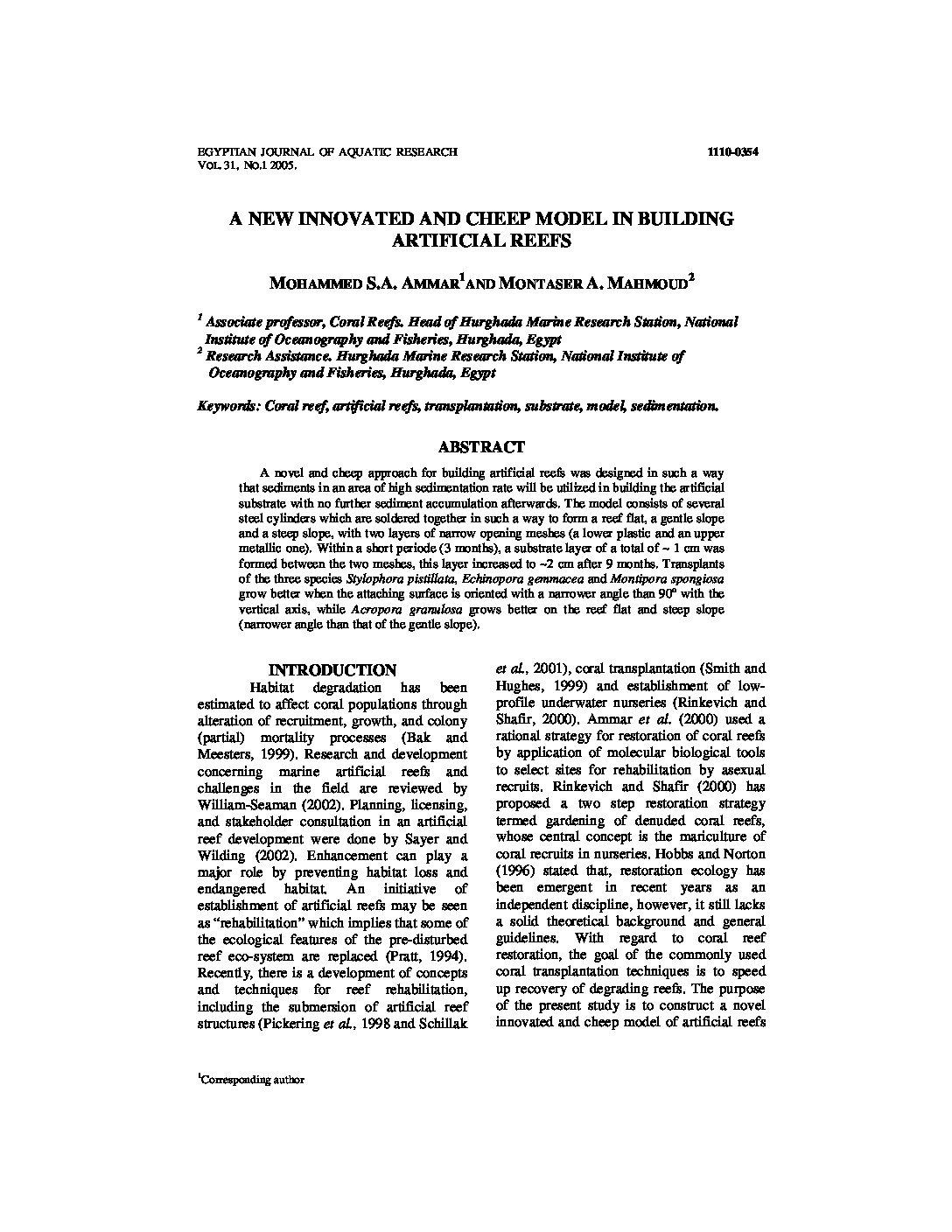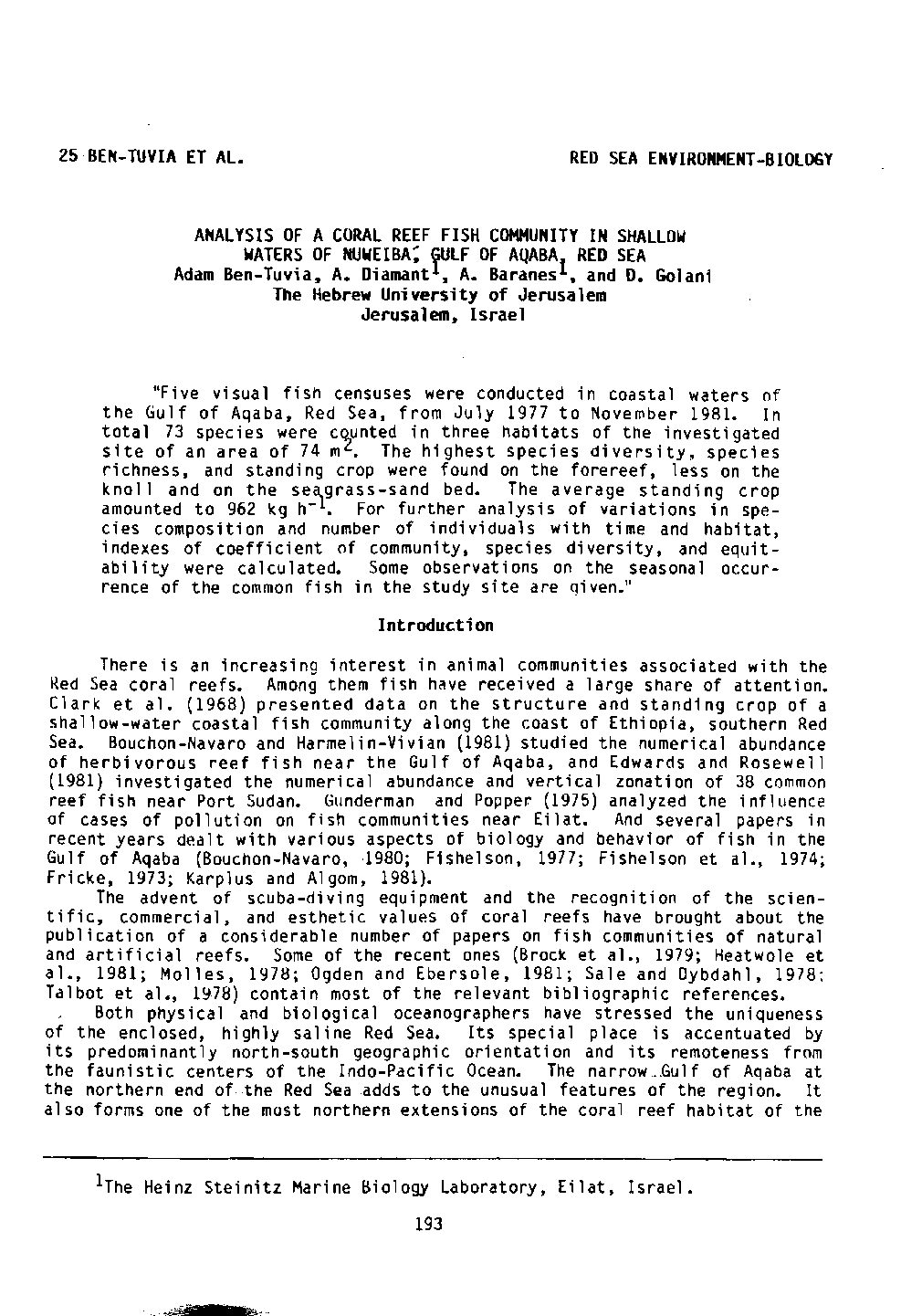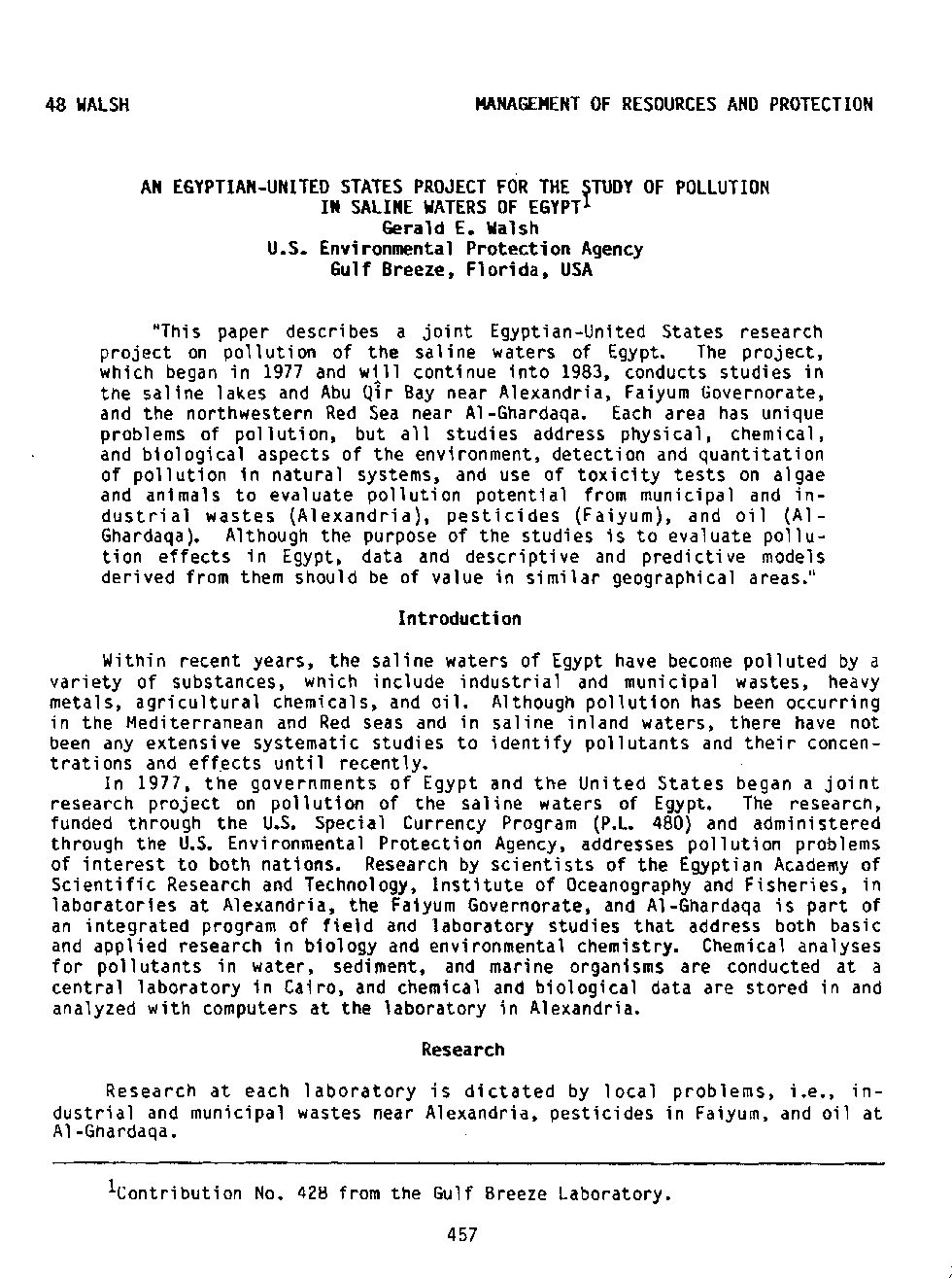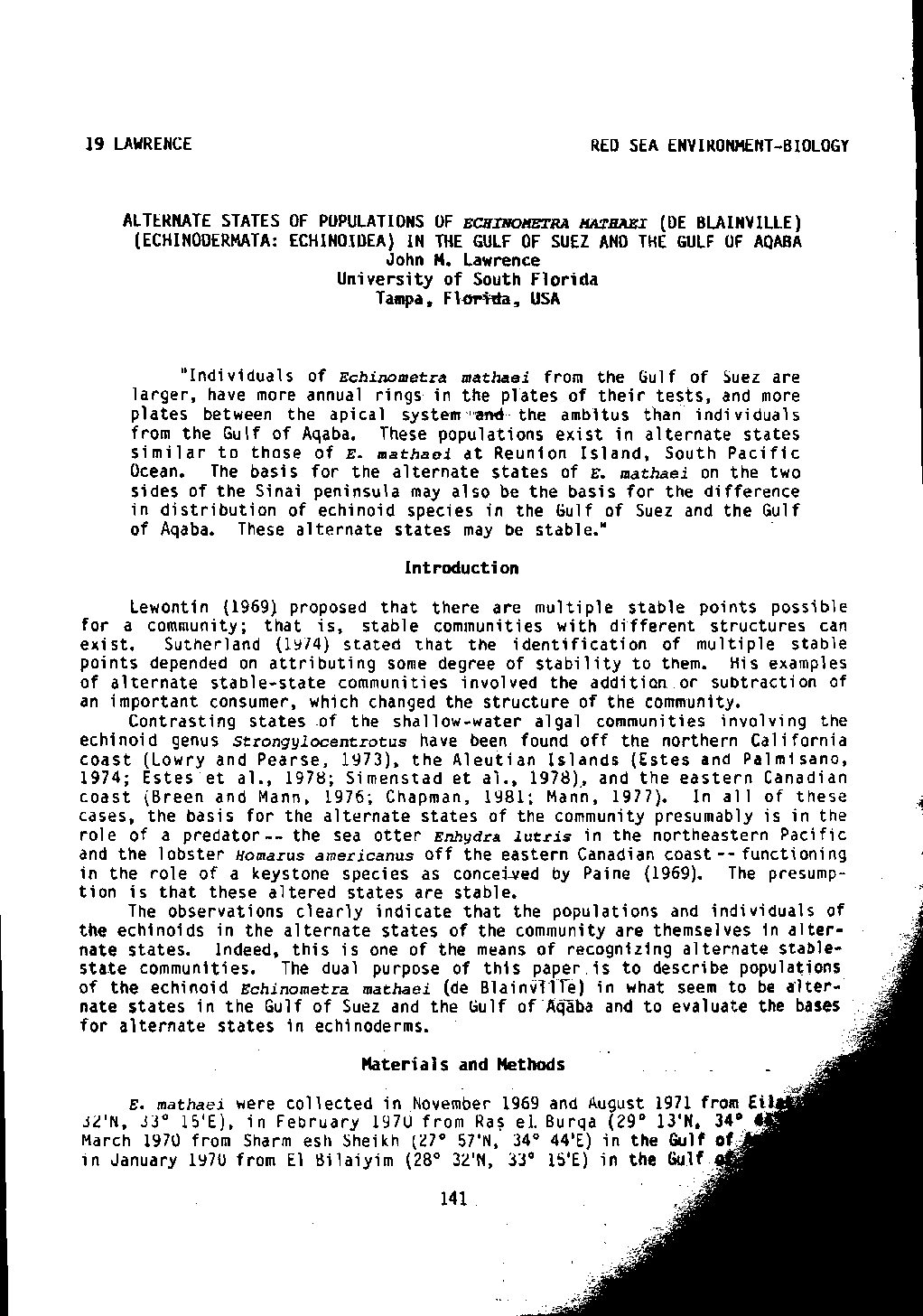Categories
vol-31CULTURE OF CHIRONOMID LARVAE (INSECTA- DIPTERACHIRONOMIDAE)UNDER DIFFERENT FEEDING SYSTEMS
MADLEN M. HABASHY
National Institute of Oceanography and Fisheries-Fish Research Station-El-Qanater
El-Khayria- Cairo -Egypt.
Keywords: Chironomid larvae, nutrition, growth rate, amino acids.
ABSTRACT
Rearing of chironomid larvae was conducted under laboratory conditions, to study the
growth rate (weight & length) of chironomid larvae under different feeding systems. Three
types of food were used , the first was Tetramin Flaked commercially available fish food
(D1) , the 2
nd
food was algae (Scenedesmus sp., D2) and the 3
rd was baker yeast (D3).
Larvae have mean initial length 1.5mm. and mean weight 0.99 µg. Three replicates were
performed for each treatment. The three diets have significantly (P<0.05) effect on both
weight and length of chironomid larvae, but larvae fed on D1 showed the highest weight
and length which represented by 36.68 µg and 9.29 mm, respectively. Followed by those
fed on D3 was represented by 7.03mm for length and 31.03 µg for weight, while D2
showed the lowest values for both length (6.28mm.) and weight (27.08 µg.). The highest
percentage of protein (51.15%) was for larvae fed on D1, followed by those fed D3
(49.45%), while the larvae fed D2 showed the lowest value of protein which was
represented by 26.45%. The lowest lipid content (12.04%) for larvae fed D1, while it
represented by 13.25 and 14.22% for larvae fed on both D2 and D3, respectively.
Most essential amino acids such as arginine, histidine methionine, phenylanine
isoleucine, leucine and lysine were significantly (P<0.05) higher in chironomid larvae fed
onTetramin, than those fed the other two diets.
The present work revealed the good nutritional value and growth rate for chironomid
larvae fed on tetramin.







